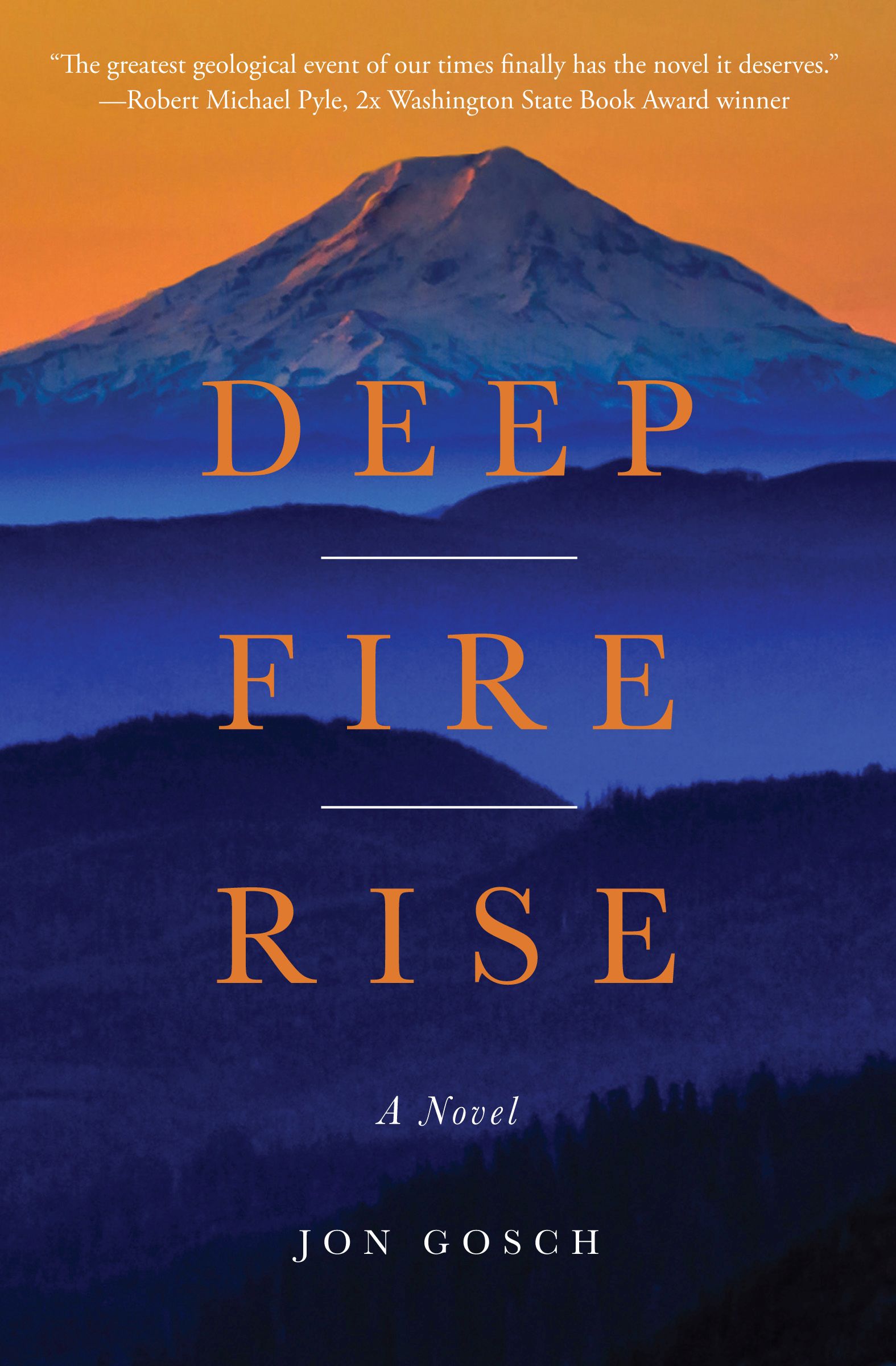Jon Gosch
Latah Books

|
“So how did the suspect enter your warehouse?” “Just walked right on in.” “Was there forcible entry?” “They certainly had no right to be in here.” “Yes, but how did they gain access to the warehouse? Did they punch through a window or break the lock on the door?” “Wasn’t any lock on the door.” “I see.” from Deep Fire Rise |
Spoiler Alert: The mountain blows
“It had been raining all day and it was raining still. Wilson cruised through the weeping country as his windshield wipers kept a ragged beat, the sky like a sad old mattress that seemed to sag atop the trees.”
It is 1980, and Deputy Sheriff Tom Wilson is patrolling the back roads of north Clark County, his job to protect the locals from “the miscreants and misfits who lurk at this fringe of society—an all-too-human cast of white supremacists, PCP brewers, Sasquatch hunters, and hermetic schizophrenics.” Towering over the region, Mt. St. Helens is restless. For weeks, the 9,600-foot mountain has been rumbling, puffing ash into the sky, and rattling the rural residents who live around the graceful giant. Against this backdrop, a brutal, seemingly senseless murder is committed.
Combining humor, warmth, and a sense of edgy danger, Jon Gosch ratchets up his story’s tension along two parallel tracks, Wilson’s hunt for the killer and the mounting pressure within the volcano. The tracks will converge on the morning of May 18, 1980, inside the red zone. (Spoiler alert: The mountain blows.)
Gosch, a graduate of RA Long High School in Longview, studied Creative Writing and Journalism at the University of Washington in Seattle. (His former teacher Jim LeMonds (South of Seattle) along with northwest writer Spike Walker (Working on the Edge, Nights of Ice, On the Edge of Survival) helped edit the book.)
Part of the enjoyment for southwest Washington readers will be recognizing familiar locales: Longview, Fargher Lake, Amboy, Yacolt (“that hapless neighborhood”), the one-time Rainier nuclear plant whose cooling tower "rose up massively from the Oregon shore like the most toxic mushroom that ever grew.”
He has the native’s feel for the country, and his descriptions ring true, whether witnessing a quiet dawn (“Another day on earth arriving by tiptoe”) or enjoying the tranquility of a small river (“like a mantra in motion.”) Immediately following the eruption, the Toutle River becomes “a flood of wet cement.”
So, too, he deftly and accurately captures the people who dwell in this region—Living on five acres overlooking the Lewis River Valley, I recognized a number of my proud, independent, 2nd Amendment, no-frill, no-nonsense neighbors in his characters.
Gosch has said that Deep Fire Rise was inspired in part by his father Vern, a Longview police sergeant in 1980, and by his brother Tim, currently a deputy sheriff in north Clark County. The book is clearly written as a tribute to law enforcement officers, those dedicated men and women, who patrol the county roads and backwoods of this drizzly, mist-filled corner of the Pacific Northwest.
This review first appeared in The Columbia River Reader (August 15-September 14, 2018.) Reprinted with permission.



